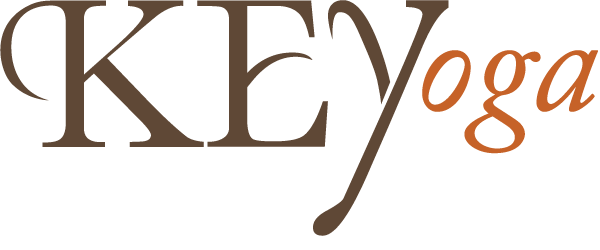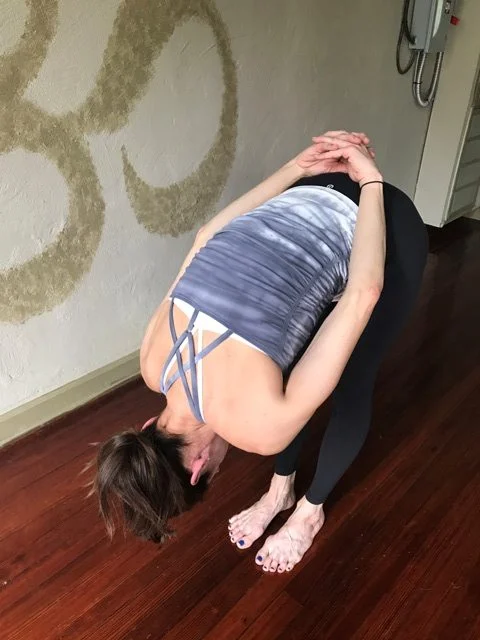What’s Important? What’s not Important?
This past weekend I was a guest teacher in anatomy for a Yoga Teacher Training Program. Sunday’s class was about the shoulders. We were doing a Standing Forward Bend with the hands clasped behind the back in Yoga Mudra. There were a couple of students who had tight shoulders. Instead of clasping their hands behind their backs, I asked them to use a belt to get more width between their hands and more stretch in their shoulders. Some of these students with tight shoulders could not lift their hands off of their sacrums at all. Instead of stretching their shoulders, they were rounding their backs and caving in their chests.
Some of these teachers-to-be were astonished to see that I suggested that students with tight shoulders take their hands wider apart. One commented that she thought that the goal was to not only clasp the hands, but to press the palms together. Now it was my turn to be astonished. I could see that these teacher trainees were confusing what is important in a pose with what is not.
It is always important to keep the spine in mind and move in the big joints first. That means that we need to cultivate movement in the hips and shoulders. If the hips and shoulders don’t move, then the spine is put under a lot of pressure to move. Each vertebrae in the spine contributes only a few small degrees to the overall movement, but the hips and shoulders are capable of a great range of movement.
In the case of the hands in behind the back in Yoga Mudra, you have to look at the shoulders and upper back. If the shoulders are wrapped forward and the upper back is rounded, then there is no movement in the shoulders and the person will have trouble clasping their hands behind their back, let alone pressing the palms together.
In that case, it would be better for the student to hold a belt between their hands and separate their hands until they can squeeze their shoulder blades together and lift their hands off of their back. What you look for is the ability to draw the spine into the body instead of it rounding outward. The idea here is that space creates freedom. With the hands apart, you create space.
Once the person can start to stretch the front of their shoulders and the spine is no longer rounded, then they can start to work their hands together.




